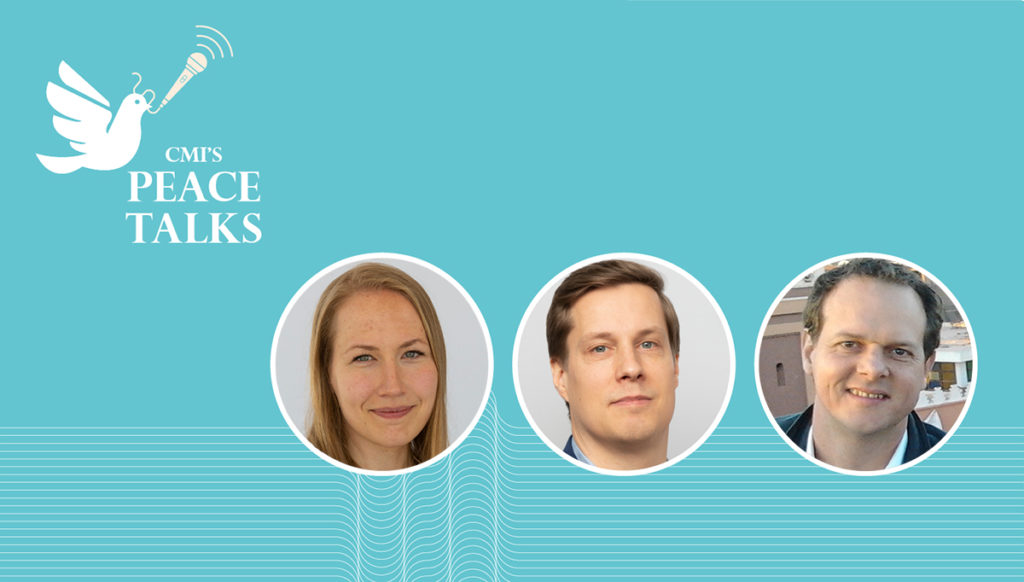Renewed hope for peace in Libya 10 years after the revolution

As Libya marks the 10th anniversary of the overthrow of Muammar Gaddafi, there is cautious optimism for better days ahead. In this episode of CMI’s Peace Talks, we discuss what needs to change so that the next 10 years would be brighter for the country.
It has been 10 years since the overthrow of Muammar Gaddafi in Libya. The end of Gaddafi’s four-decade rule held the promise of a better future, but many dreams remain unfulfilled as the country has been caught up in constant turmoil.
Still, as Libya marks this 10th anniversary, there is renewed hope for peace. As part of the official peace process, the UN-led Political Dialogue Forum recently elected a unified interim government that aims to bring an end to the political division of the country that has persisted for more than five years. The interim government is committed to holding national parliamentary and presidential elections next December.
The fact that the losing candidates accepted their defeat in the election of the interim government and congratulated the winners is a promising sign, observes Wolfgang Mühlberger, CMI’s Senior Advisor for the Middle East and North Africa.
“There seems to be real fatigue among the Libyans to stop the quarrels and to move forward. There is good reason to have hope.
“Even the political elite that is fighting among themselves about the future of Libya have come to the realisation that they need to reconquer national sovereignty, which has been lost during the past ten years because of the massive level of external interference.”
The situation in Libya remains extremely fragile, with foreign powers fuelling the conflict and ordinary Libyans having to deal with deteriorating life conditions. In addition to guaranteeing a smooth transition to elections, there is an urgent need to lay the basis for sustainable peace. The UN-led official peace process has largely focused on managing the acute crisis at the expense of working out a common vision and future for Libya.
Strengthening the voices of marginalised groups
The voices of marginalised groups need to be strengthened so that they can have a say on how to build a country that would meet the needs of all Libyans. For several years CMI has supported dialogue between these different groups to help them develop a common vision and overcome their differences.
“There are a host of groups that feel, for very valid reasons, that they have been marginalised and excluded and that their rights have been not taken into consideration,” says Saana Keskitalo, Senior Manager of CMI’s Libya project.
These groups include political parties, women and key groupings in Libya’s marginalised South-Western region of Fezzan.
CMI’s work, which focuses on building trust between political parties and strengthening their role in the political system, has become evermore important as the country is now heading for elections. The political parties were banned under Gaddafi, but they are certain to play a crucial role in the future in building a democratic and peaceful Libya, Keskitalo says.
In CMI’s Peace Talks we look at the world through peacemaking lenses. We have conversations with both our own and other top experts on what it takes to build lasting peace amidst the volatile world situation. In the wise words of our founder, Nobel Peace Laureate Martti Ahtisaari, we believe that all conflicts can be resolved. This podcast is about how to do it.
Guests
Saana Keskitalo, Senior Manager of CMI’s Libya project, and Wolfgang Mühlberger, CMI’s Senior Advisor for the Middle East and North Africa.
***
Recorded: February 25, 2021
Edited: CMI’s Communications Officer Olli Puumalainen
Host: CMI’s Communications Manager Antti Ämmälä
Jingle: Jukka Backlund
***
CMI’s Peace Talks available on: Anchor, Spotify, Google Podcasts and iTunes.